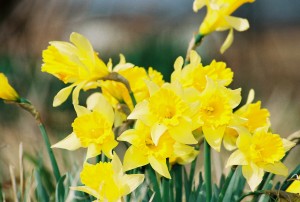Write-A-Thon: Celebrate NaPoWriMo
 Write-A-Thon: Celebrate NaPoWriMo by Rochelle Melander
Write-A-Thon: Celebrate NaPoWriMo by Rochelle Melander
National Poetry Writing Month (NaPoWriMo) was founded by Maureen Thorson in 2003 and encourages participants to write a poem a day during the month of April. I can’t think of a better way to celebrate National Poetry Month!
I’m a bit afraid of writing poetry. When I try to craft a poem, I freeze. I hope to overcome my fear by writing through it. This year, I’m using NaPoWriMo to simply play with words and poem-making. Hopefully by the end of the month, I will have conquered my fear of writing poetry.
For those of you who also struggle to write poetry, here are some of my favorite poetry writing books.
A Kick in the Head: An Everyday Guide to Poetic Forms by Paul B. Janeczko, illustrated by Chris Raschka. If you’ve ever wondered about how Haiku and Tanka are different or what in the world a Pantoum is, then this is the book for you. Not only will you learn the different forms of poetry, you will get some brilliant ideas for your own poetry making!
Haiku: Learn To Express Yourself by Writing Poetry in the Japanese Tradition by Patricia Donegan. This book for young readers ages 7-12 is the perfect introduction to the practice of writing Haiku and other Japanese poetry. In addition to learning how to write Haiku, readers are introduced to fun Haiku activities.
Poetry Matters: Writing a Poem from the Inside Out by Ralph Fletcher. Learn what poems are, how they help us to deal with our emotions, how to brainstorm ideas for poems, and how to draft a poem from master children’s writing teacher Ralph Fletcher.
Poetic Medicine: The Healing Art of Poem Making by John Fox. For many of us, writing poetry is simply a way to make sense of life’s challenges. Fox’s book provides the structure and exercises to support writers in finding hope and health through writing poetry.
Poetry as Spiritual Practice: Reading, Writing, and Using Poetry in Your Daily Rituals, Aspirations, and Intentions by Robert McDowell. Reading and writing poetry can become a spiritual discipline. McDowell begins the book by talking about the “shape of practice” and the building blocks for writing poetry. Like A Kick in the Head, McDowell teaches readers about many poetry forms and how to write them.
Your turn: What poetry book have you used to shape your practice?









My writer’s group is just finishing up working our way through Frances Mayes’ book, “The Discovery of Poetry”. Not only did all of us enjoy it, we all stuck with it for fourteen weeks – and are now attempting NaPoWriMo!
I LOVE that book. I’m glad I am not the only one trying #NaPoWriMo, though I won’t be doing the fancy forms!
I don’t think I’ve ever actually read a book on how to write poetry. When I first started writing poetry, it came out in traditional formats based on my experiences with old hymns, Dr. Suess, and other forms of structured rhyme schemes. However, during my college years, I was heavily influenced by the poetry of Rumi and Whitman. Reading these two has encouraged me to write poetry that has texture.
Jason, I love your phrase “poetry that has texture.” That says it well. I’m a big Rumi fan, too. Thanks for the reminder.
I loved Rod McKuen and after listening to him and reading his books, I just started writing poetry using personal experiences as well as the outdoors.
That is where a lot of my poetry has come from. I have written a lot of poetry and prose as well as some song lyrics. I feel it has to come from your heart and passion about yourself and life.
It has been about a year since I have really written some poetry, but I feel inspired again with a grandson about to be born…..
Love this, Pam! Thank you. I fell in love with McKuen’s poetry as a teen. This is a good reminder to go back and read his work!